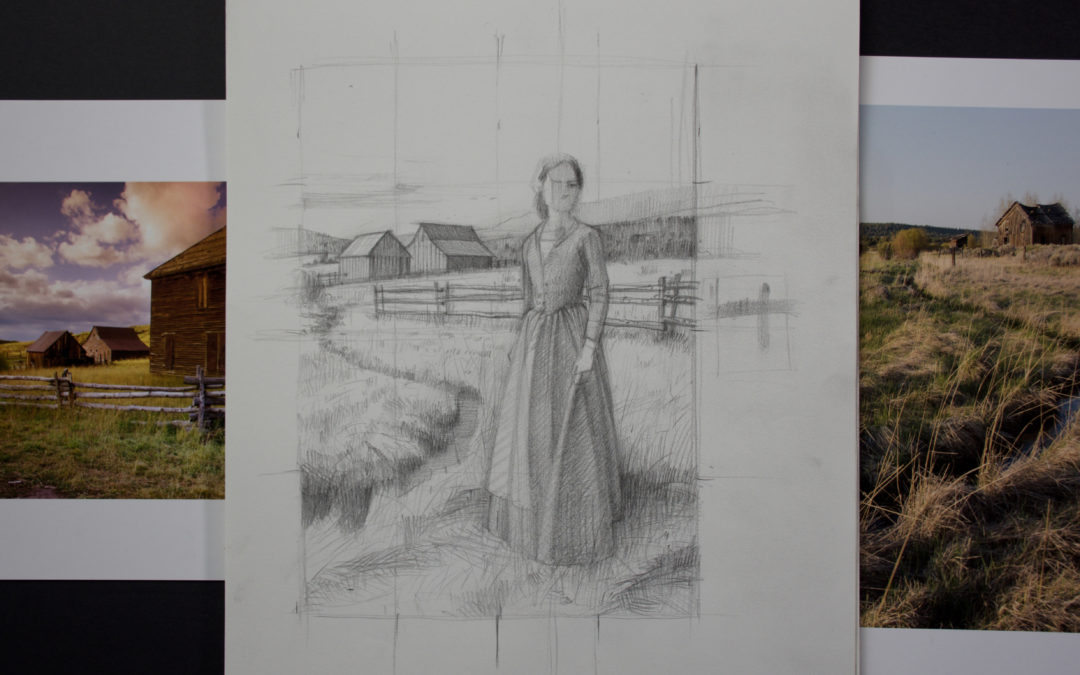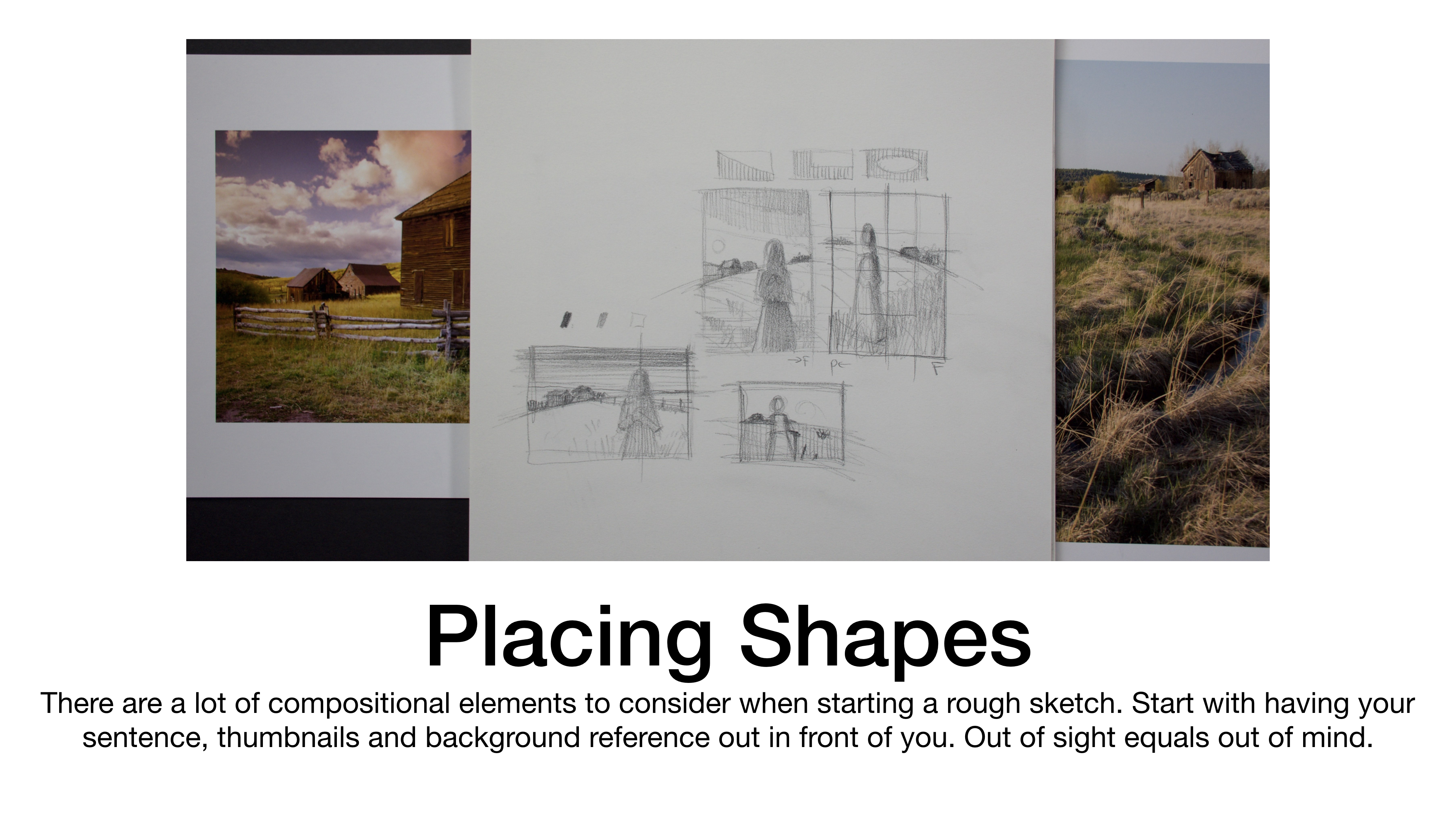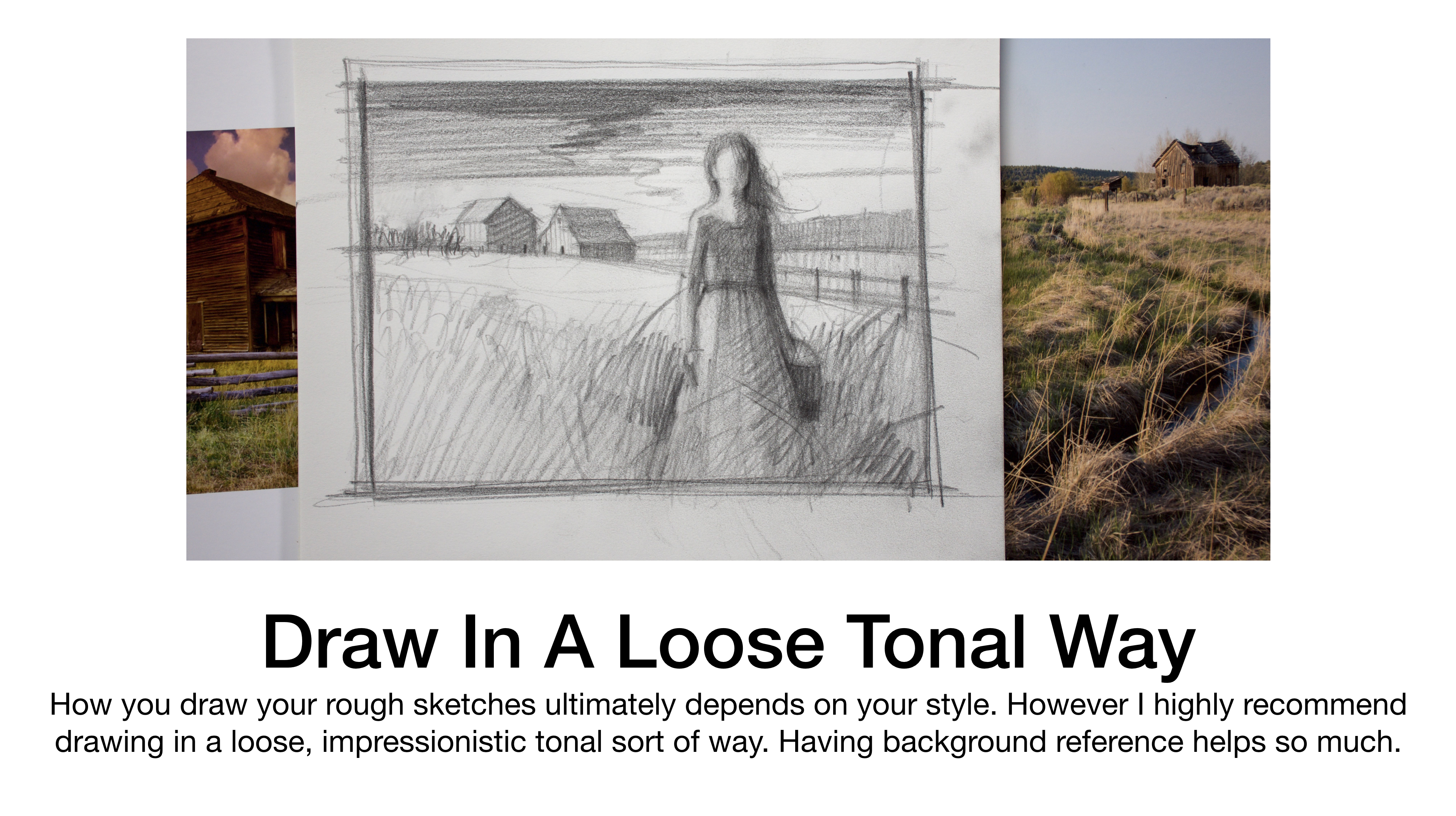When working with an Art Director on an illustration project it’s appropriate to provide them with at least three rough sketches. It helps to get a dialogue going concerning the details of the scene. This in turn will help when working with a model during the photoshoot.
The model you are photographing for your illustration project will really appreciate seeing a rough sketch. It will most definitely help them visualize how they should be acting out the pose.
Working on rough sketches is a great time to plan and think. You can certainly use a multitude of techniques when composing your scene. I like using a grid, I also like to use big compositional shapes. Compositional shapes are big areas of light and shade.
You can also use compositional shapes to help organize very complicated areas of your image. Grouping things or people together in similar values is a great way to think about compositional shapes.
There should be a method to the madness of creating quality illustrations time and time again.
So far my method is inspiration, thumbnail sketches, background reference and now rough sketches.
Remember every artist’s process should be unique and different. There is no one size fits all to process. The point of this Illustration Process course at Drawing Tutorials Online is to get you thinking about how you go about creating images.
Are you flying by the seat of your pants? If so you need to start thinking about a process that gets you consistently good results. The main difference between a professional artist and an amateur is consistency.
That’s why I’ve created this course for you. I want you to understand and master your personal process for creating great art.
Thanks for watching.




